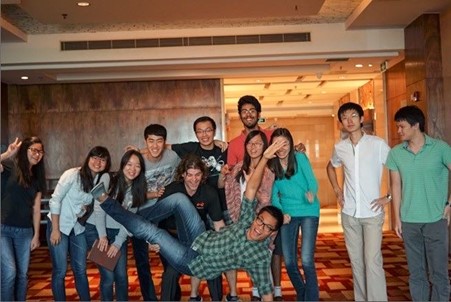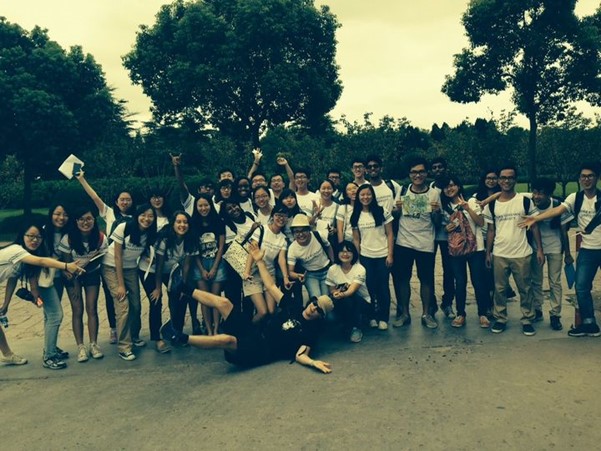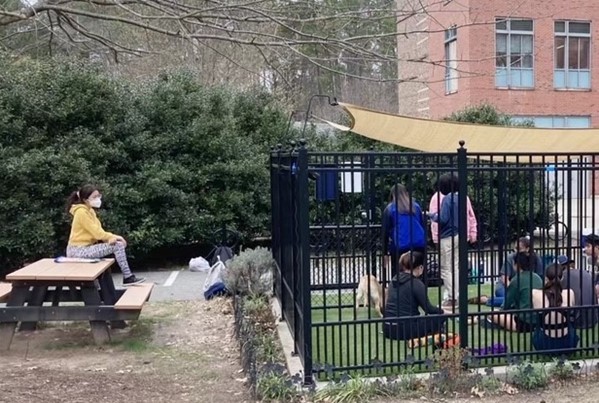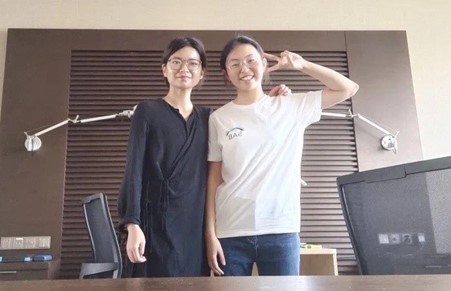Dr. Wen Zhou sits in her office on the campus of Duke Kunshan University, drinking her first coffee of the day. In the distance the rumble of work on Phase II, a huge extension to the university campus, can be faintly heard.
Physically, Duke Kunshan is a far cry from what she remembers of the institution when she attended in its early days in 2014, as part of a small cohort taking the DKU Global Learning Semester, a semester-long spell at the then fledgling university. At that time DKU was an idea beginning to take shape, but today it is a fully developed landmark on the China-US academic landscape, and still expanding, a metamorphosis that mirrors Zhou’s own academic journey.

Zhou, who became Duke Kunshan’s newest faculty member recently, was a psychology student at Beijing Normal University in 2014, when she first heard about DKU and took the opportunity to attend one of its Global Learning Semesters. That brief stint proved an inspiration to the fresh-faced student, who, on graduation in 2016, moved to the United States to study for a Ph.D. at Duke University. Now, she has returned full circle, joining DKU again, this time as an assistant professor of evolutionary anthropology, a new subject among the university’s course offerings and in China.
That trip to DKU in 2014, was instrumental in Zhou’s academic journey in several ways: it gave her a taste of the learning techniques and open atmosphere at the university, it introduced her to the subject that would become her area of research focus and it is where she first met Brian Hare, the professor who has inspired her throughout.

“The Global Learning Semester was hosted by the Swissotel in Kunshan, which I think was a nice forum, especially for facilitating interactions between faculty members and students. With students and faculty living together in the hotel for two months it was impossible to avoid interaction with each other,” says Zhou.
“The first time I met Brian Hare was at one of his office hours. These are get-togethers where professors usually answer questions about the content of the course, but Brian was open to talking about anything,” she adds. “We talked deeply about his research, and I was able to give my insights and introduce more about my research skills.”
That lead to Zhou and Hare working together on a research project looking at the dehumanization of medical staff in China, which had come to Hare’s interest because of a series of attacks on them. Their research collaboration lasted beyond the Global Learning Semester, when Zhou returned to Beijing Normal University, and sparked in her an interest in evolutionary anthropology, which looks at the biological and the cultural evolution of humans.

“I think the essential reason that Brian and I chose to work together in that year was that we saw the enthusiasm in each other’s minds about how this would be both an interesting and useful topic to look into,” says Zhou.
“It felt like we were starting something new and meaningful, and all of this began from the office hour, which is a tradition I try to continue,” she adds.
Following graduation Zhou began to look at postgraduate study opportunities in the United States and after researching a number of options decided to go to Duke University, one of DKU’s founding institutions, where Brian Hare would be her mentor. While there she studied for a Ph.D. in evolutionary anthropology, with a focus on prejudice and how interaction with different groups can alter people’s attitudes.

This year Zhou returned to Kunshan, and to DKU, to take up her first faculty post, and with ambitions to be a pioneer for the field of evolutionary anthropology in China.
“I think China needs a bridge, not just me but maybe a larger cluster of scholars, to bring back the current advanced research, including the approaches researchers are taking and the current insights about real life issues in the fields of both evolutionary anthropology and social psychology,” she says.
She has begun this quest by starting work on building her own “interspecies lab” to investigate human-animal relations and human interpersonal relationships. She also wants to begin collaborating with academics in connected fields from other universities.

“Even though Kunshan is a small city, it is located in the eastern area of China and there are many great psychologists there who I hope to collaborate with across universities and across different fields,” she says.
“I’m curious about how positive attitudes towards other beings can be facilitated early in life. That means I need to look into young children and obtain insights from developmental psychologists,” she adds.
Duke Kunshan has changed so much since Zhou’s first experience of it: growing in size, numbers, academic possibilities and reputation. She has her own office now, a lab in the making, and takes a stroll sometimes in the campus gardens that did not exist back in 2014. Despite all this, there is one thing that has not changed and that is the university’s pioneering spirit. It could be the perfect place for an ambitious young professor.
“Ultimately my goal is to build a new academic field in China,” says Zhou, taking another sip of her now cool coffee, as she looks out of her office window across campus.

